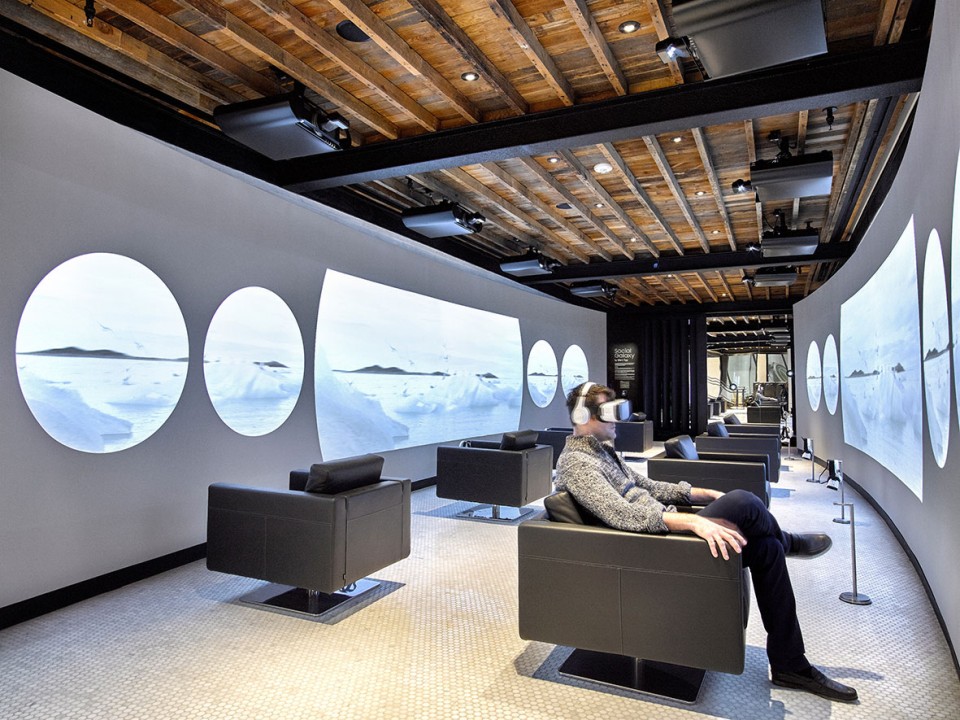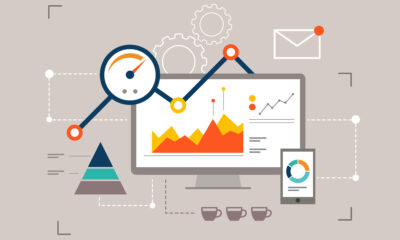TECHNOLOGY
How Virtual Reality Can Enhance Customer Experience Centers in a Post-COVID World

Due to the challenging times the world is facing right now, we are seeing more and more companies look to alternative means to showcase and demonstrate products.
One of the things that have been on the rise of late has been the Customer Experience Center or CEC for short. Brands are looking for creative ways to connect with their customers, and utilizing modern technology to showcase a company’s vision has tremendous benefits.
CEC’s have proven in recent years to be one of the most effective ways for brands to showcase their latest products and identify with customers in unique ways like never before.
Benefits of the CEC
One of the more effective ways of showcasing complex enterprise offerings or products is through a live and interactive demonstration. This is the core value of the CEC; being able to provide prospective customers with the “try it before you buy it” approach. This is especially true for cutting edge technology, many times in which executives and enterprise decision-makers haven’t even tried as of yet.
With virtual reality specifically, a vast majority of C-level executives haven’t used the medium in an enterprise training setting. A small sampling has tried it for gaming but just haven’t had the opportunity to gauge the effectiveness of VR for improved learning efficacy.
Enter the CEC VR demo, a chance to see first hand the power of using VR as a medium for knowledge enhancement. It is one thing to have an online demo or case study, but it an entirely different ball of wax to put on a VR headset and try a simulation first hand.
Not only does the CEC provide a chance for brands to show off their latest technology, but they also showcase the brand’s leadership towards innovation and product excellence. This also gives a chance for brands to consolidate sales offerings in one convenient location without having multiple channels for difficult to showcase products. Many times due to cost it just isn’t feasible and this leads to longer sales cycles which slow profits — being able to consolidate is a huge win and should bolster overall win ratios.
Drawbacks of the CEC
While the CEC can be a unique way to showcase and demonstrate product offerings, it does not come without some disadvantages. Specifically, during the current global pandemic, there may be issues having groups of people close together for product demos. Due to COVID-19, there is a lot more pressure on companies to reduce social interactions, and this may directly relate to the CEC mantra. In fact, due to the Coronavirus pandemic, a lot of CEC’s were forced to shut down as they typically had large groups visit them at a time.
Another thing to be aware of is the initial cost to put a CEC together. They take up considerable real estate, and the cost is generally high as many times they feature cutting edge technology and require specific hardware and support staff to maintain and utilize effectively.
How Current Drawbacks Are Being Addressed
In order to optimize the effectiveness of CEC’s many groups are starting to include them in their HQ’s where dedicated employee resources can be tasked without the need for extended travel costs and upskilling. This way the center is managed effectively and workers have the flexibility and freedom to continue their day to day activities outside of the CEC.
In the wake of COVID-19, many centers have had to reduce the number of people they can allow inside at one time. Space has been created between showcases and demonstrations and careful considerations are being taken to sanitize high traffic areas. By doing this and following social distancing protocols CEC’s can still function in a safe and effective way.
Immersive Technology & Hands-On Demos
With the advent of immersive technology, we have seen a number of CEC’s start to adopt using both VR and AR use cases inside their centers in order to have interactive demos of product offerings in order to bolster sales. Many times products can be complex and having a first-person demo of the product or simulation where the user can “try” the product even in a virtual environment can be extremely helpful for a buyer.
Virtual Reality specifically can place the user in an exact replica environment and allow the customer or prospective buyer to simulate the function of any product or even service. Augmented Reality, on the other hand, can be used with real-world props to highlight features and showcase overlays to enhance product knowledge to provide a more informed consumer which leads to bolstered sales. In the example above a box of Samsung headphones can be scanned with a smartphone to produce an augmented view on a mobile device and allow the user to see product reviews, technical specifications, and sharing options for getting a 3rd party opinion if needed.
All of these are tools that will enhance enterprise sales of which is the main role of the CEC anyway. With CEC’s using modern technology businesses that are adopting will see an uptick in sales as a more informed consumer is one that buys more. Overall the CEC revolution will continue to grow and we will see more and more brands look to enhance their sales and product offerings using immersive technology.
Source link















![The Current State of Google’s Search Generative Experience [What It Means for SEO in 2024] person typing on laptop with](https://articles.entireweb.com/wp-content/uploads/2024/04/The-Current-State-of-Googles-Search-Generative-Experience-What-It.webp-400x240.webp)
![The Current State of Google’s Search Generative Experience [What It Means for SEO in 2024] person typing on laptop with](https://articles.entireweb.com/wp-content/uploads/2024/04/The-Current-State-of-Googles-Search-Generative-Experience-What-It.webp-80x80.webp)


You must be logged in to post a comment Login